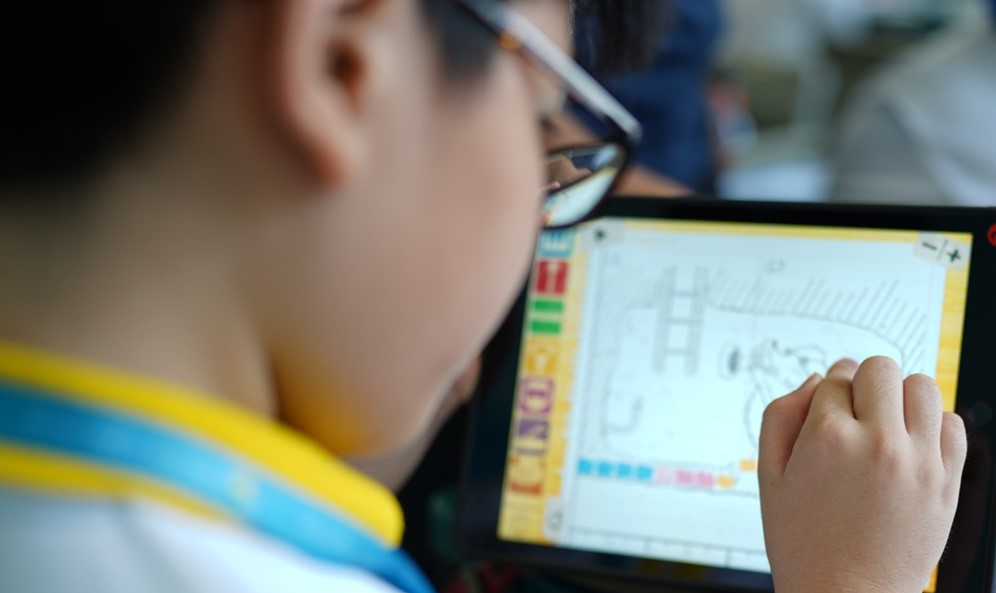Information & Communication Technology (ICT)
Department Goal
Technology-enhanced learning environment that fosters effective teaching and learning.

Student Outcomes
Students as Future-Ready Digital Learners
-
Self-Directed Learners
-
Connected Learners
-
Lead a Healthy Digital Lifestyle
Student Programmes
From Primary 1 to Primary 6, our students receive training to gradually build their Basic ICT skills in accordance with the MOE Baseline ICT Standards (New Media Literacies). Additionally, students experience subject-specific ICT enriched learning experiences to prepare them as Future-Ready Digital Learners.
PVPS ICT Baseline Programs
|
Level |
Programmes
|
|---|---|
|
Primary 1 |
Introduction to basic parts of a laptop and login to Windows Login to SLS and participating in Zoom lessons Touch Typing |
|
Primary 2 |
Using internet browser (Google Chrome) and searching for media Introduction to MS Word |
|
Primary 3 |
Using internet browser and searching for information Introduction to MS PowerPoint |
|
Primary 4 |
Introduction to Google Drive
|
|
Primary 5 |
Code for Fun (by IMDA) |
|
Primary 6 |
Introduction to Google Sites |
Teacher Outcomes
Teachers as Designers of Engaging and Impactful Technology-Mediated Learning Experiences
-
Designers of Technology-Mediated Learning Experiences
-
Facilitate Engaging and Impactful Active Learning with Technology
-
Digital Learners who continually develop themselves Professionally
Staff Development
With the introduction of SkillsFuture for Educators: e-Pedagogy in 2019,
the experience of Full Home-Based Learning (HBL), and Blended Learning
in 2020. The school believes in developing our staff to leverage technology
for teaching and learning as a critical driver to attain its intended student
outcomes.
ICT Department used the following learning platforms to build staff capacity in e-pedagogy:
-
School wide Professional Development on e-pedagogy
-
Regular ICT sharing sessions conducted by ICT Champions; 15 min Tech & Go
-
ICT Mentoring sessions by ICT Mentors
-
Courses conducted by AST, ETD or other organisations

